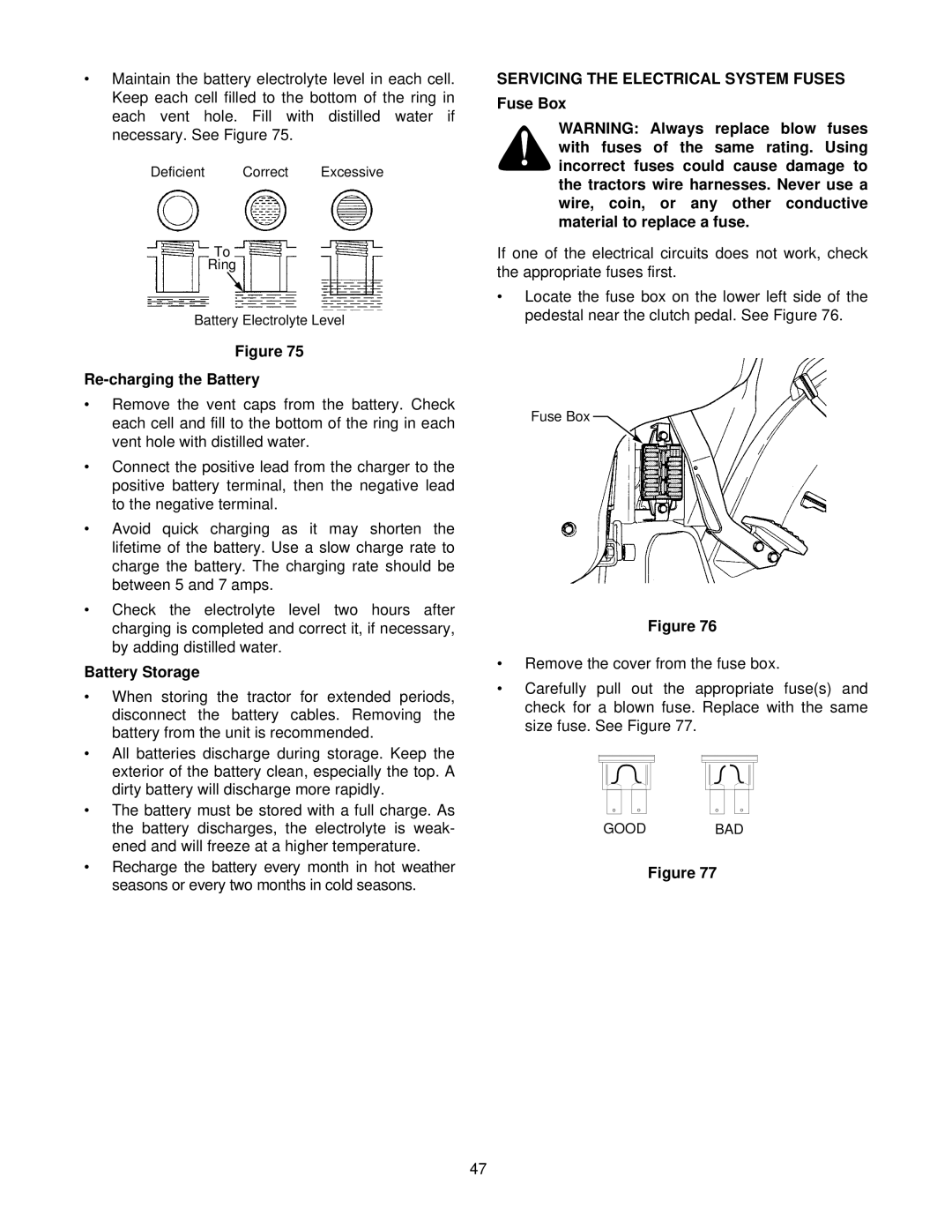
•Maintain the battery electrolyte level in each cell. Keep each cell filled to the bottom of the ring in each vent hole. Fill with distilled water if necessary. See Figure 75.
Deficient Correct Excessive
To
Ring
Battery Electrolyte Level
Figure 75
Re-charging the Battery
•Remove the vent caps from the battery. Check each cell and fill to the bottom of the ring in each vent hole with distilled water.
•Connect the positive lead from the charger to the positive battery terminal, then the negative lead to the negative terminal.
•Avoid quick charging as it may shorten the lifetime of the battery. Use a slow charge rate to charge the battery. The charging rate should be between 5 and 7 amps.
•Check the electrolyte level two hours after charging is completed and correct it, if necessary, by adding distilled water.
Battery Storage
•When storing the tractor for extended periods, disconnect the battery cables. Removing the battery from the unit is recommended.
•All batteries discharge during storage. Keep the exterior of the battery clean, especially the top. A dirty battery will discharge more rapidly.
•The battery must be stored with a full charge. As the battery discharges, the electrolyte is weak- ened and will freeze at a higher temperature.
•Recharge the battery every month in hot weather seasons or every two months in cold seasons.
SERVICING THE ELECTRICAL SYSTEM FUSES
Fuse Box
WARNING: Always replace blow fuses with fuses of the same rating. Using incorrect fuses could cause damage to the tractors wire harnesses. Never use a wire, coin, or any other conductive material to replace a fuse.
If one of the electrical circuits does not work, check the appropriate fuses first.
•Locate the fuse box on the lower left side of the pedestal near the clutch pedal. See Figure 76.
Fuse Box ![]()
Figure 76
•Remove the cover from the fuse box.
•Carefully pull out the appropriate fuse(s) and check for a blown fuse. Replace with the same size fuse. See Figure 77.
GOODBAD
Figure 77
47
